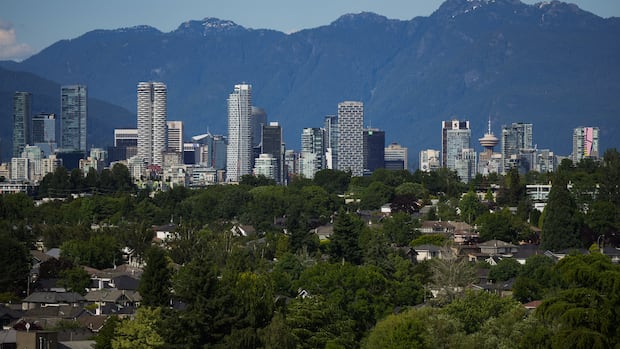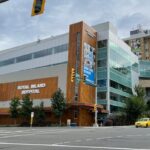British ColumbiaThe plan, which staff have worked on for some time and has been heavily promoted by Sim, would be to sell six sites to an arms-length corporation that would work with other developers and investors to build rental housing. Plan supported by ABC Vancouver, but required two-thirds vote because it involved selling public landThe City of Vancouver debated creating an arm’s-length corporation that would develop rental housing at six sites across the city. (THE CANADIAN PRESS)A motion backed by Vancouver Mayor Ken Sim and his ABC Vancouver party to create a city-owned corporation to develop market rental housing on six city-owned sites failed in council on Tuesday.All seven ABC Vancouver councillors voted in favour, and all four opposition councillors opposed, but because the plan involved selling city lands to a new Government Business Enterprise (GBE), it required a two-thirds vote to pass.The plan presented to council, which staff had worked on for some time and had been heavily promoted by Sim, would be to sell six sites to a new arm’s-length corporation fully owned by the city, which would then work with other developers and investors to build rental housing. Staff said, if approved, the six sites could create 4,000 units of housing.But it failed to get the necessary support of any of the four opposition councillors, as both sides accused the other of making the proposal a partisan endeavour. “It is disappointing that this incredible project is being politicized now,” said Sim, who said the it would have provided more housing and generated revenue for the city.”We talk about housing, but every time we come up with a solution, they are going to fight it, not because these ideas are great and have been proven, but because [our] side has promoted it.”The only analogy I can think of is when the parents squabble and people suffer … there are strains on financial resources across municipalities, and I don’t think the province and feds are going to rescue us.”It was an argument rejected by Green Party Coun. Pete Fry, who argued the proposal wasn’t fully fleshed out, and only came to a vote now because the city was a year away from an election. “There’s no mandate to support affordability … there’s no plan to build this in the immediate future,” said Fry. “The real imperative is political. It’s trying to deliver on a big sexy [plan of], let’s lower taxes, let’s make money, let’s run the city like a business.”The six sites identified by City of Vancouver to sell to a new development corporation that would be fully owned by the city. (City of Vancouver)Higher risk, higher rewardFor years, Sim has talked about Vancouver emulating the University of British Columbia’s housing model, where a private real estate development company fully owned by the university is in charge of creating market housing, with the proceeds going back to the university’s endowment.“It’s really just a smart use of land,” said Brad Foster, director of market rental housing for the Vancouver Housing Development Office, of the city’s plan in a media briefing before the city council meeting.Foster said the plan would have been the first of its kind in Canada due to the GBE being stand-alone and responsible for being financially viable on its own.Council was also asked for $8 million from the city’s endowment fund to be used as initial startup capital for the GBE, which would have its own board of directors.One of the proposed sites is a 54-storey, 1,136-unit building in downtown Vancouver, located at Pacific and Hornby streets where non-market units would be targeted for families with annual household incomes between $90,000 and $194,000. Traditionally, the city has been involved in long-term prepaid ground leases without participating in development. Staff said a separate corporation would allow it to take on more ambitious projects without impacting the city’s own debt and liabilities. “Entering into joint ventures and self-development poses a higher level of risk, but also provides for the opportunity to generate higher financial returns by leveraging debt and equity,” said the staff report to council.Councillors opposed to the motion wanted more certainty over the values of the corporation, and targets for the creation of more affordable housing, including non-market rental and co-op units.”We don’t have a clear picture of the fundamental strategic plan,” said Coun. Rebecca Bligh. “I see merit in what’s being proposed. I also see more questions than answers to support it today.”ABOUT THE AUTHORJustin is the Municipal Affairs Reporter for CBC Vancouver, covering local political stories throughout British Columbia.
Vancouver council does not approve arm’s-length, revenue-generating housing corporation











